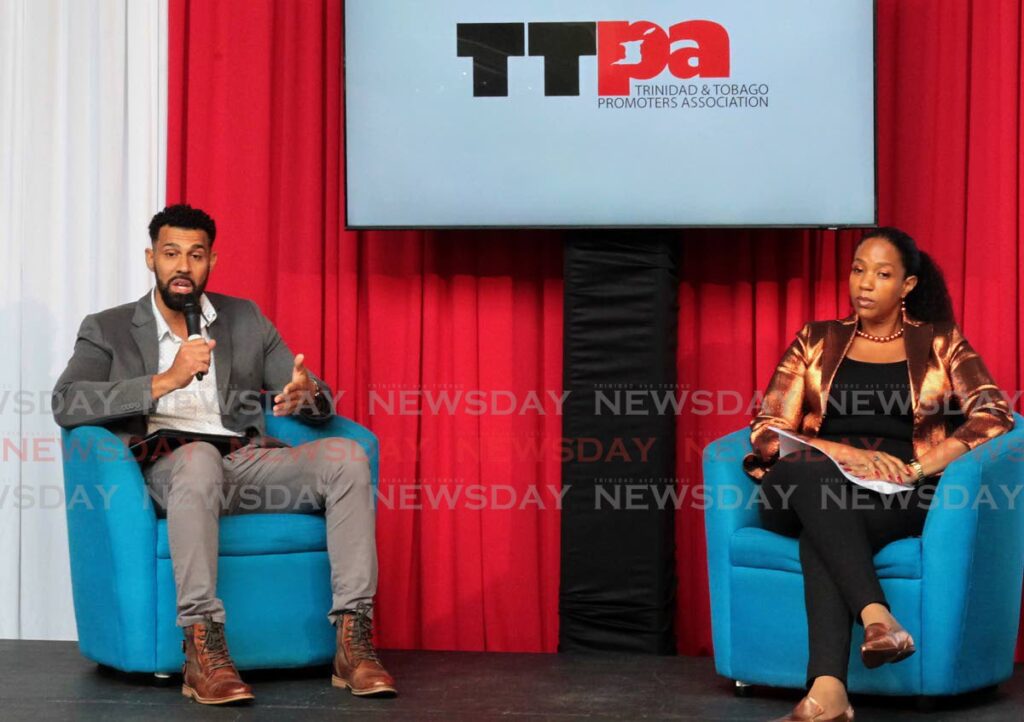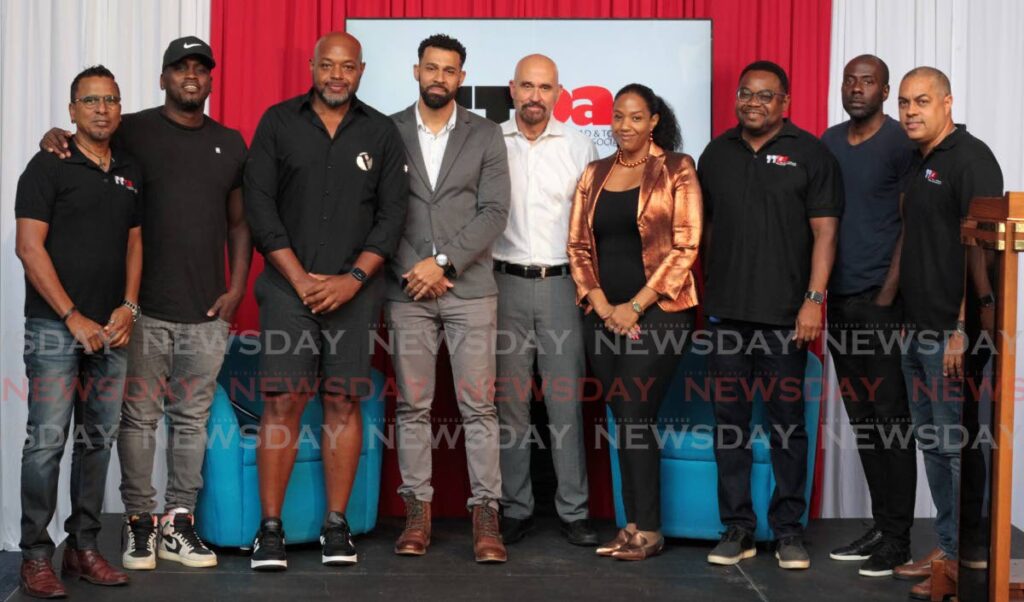Promoters want change to Theatres and Dance Halls Act

DESPITE meetings with the police last year, the TT Promoters Association (TTPA) is again complaining about the exorbitant cost to hire police to be at events.
This issue was raised in the association's press conference at Queen’s Hall, St Ann’s on Monday.
It was reported in August, that following a meeting, the TTPS was re-evaluating and monitoring its policies and procedures for extra-duty arrangements with fete promoters and event organisers, to reduce the likelihood of irregularities and discrepancies.
TTPAs president Jerome “Rome” Precilla said on Monday that none of this had actually happened.
The association plans to file a Freedom of Information request “as it relates to police intervention in the licensing arrangement and to discover what aspect of the court policy mandates this.”
It also plans to lobby for changes to the Theatres and Dance Halls Act – legislation which governs this process and is willing to use its lawyers to help do so.
The association addressed the issue of what it termed "excessive police strength" at its events.
Its spokesperson, Paige De Leon, said it has consistently addressed “the extortionate demands” made by the police.

The association said it has pleaded for “modern, fit-for-purpose legislation to ensure a standardisation of the event licensing process.”
“The current framework used to apply for and qualify for licenses has become impossible for us to navigate. Obtaining a license to host an event was once the largest administrative hurdle to hosting events. That has now also joined the ranks of the most expensive,” De Leon said.
She said this was as a result of demands being made by the police.
At a recent school bazaar there were more police attending than teachers, she claimed. While agreeing that police need to be at such public events, the association is questioning the number of officers being sent.
Over the years, what was once a discretionary allocation of a few officers or so, has morphed into hundreds of officers being assigned extra duty at events, the cost of which must be borne by the event host, De Leon said.
“This year the numbers of officers being allocated to events are more than ever. So far, event producers have reported, in some cases, ten per cent of their total income is being used to pay police.” This equates to between $30,000 to $250,000 being paid to the TTPS per event.
“These assignments of strength are ad hoc, last minute and without transparency or reason.”
Event organisers, she added, still have to pay private security firms to get the work the organisers want done to keep patrons safe and ensure smoothness.
The association said it has spent years trying to negotiate a way out of “this unreasonable relationship.”
The association said it failed to reach a reasonable position with the TTPS despite several meetings and feels it is not the responsibility of the business community to pay officers' extra duty.
She said this “discretionary intervention forced upon them by the court is covered in mystery” and that was why the association is planning to file its FOIA request.
Rome said Carnival, for promoters, begins on Boxing Day and he has noticed a decline in attendance this year. He said the majority of promoters are not seeing the number of patrons they once had before the pandemic.
“We are seeing drops in attendance ranging from 15 per cent all the way up to 50 per cent,” he said.
He said promoters are trying to keep the cost of their tickets down so more people can come to these events.
“We can’t be the ones trying to keep our prices down when everyone else is trying to raise theirs. Suppliers have raised their prices, the artistes have raised their prices.”
He said there are cases where the same event with the same number of people had double the police strength than what it had before.
He said a recent cooler-type event with 500 people was assigned 97 police officers at a cost of $53,936 to the event organisers.

Comments
"Promoters want change to Theatres and Dance Halls Act"